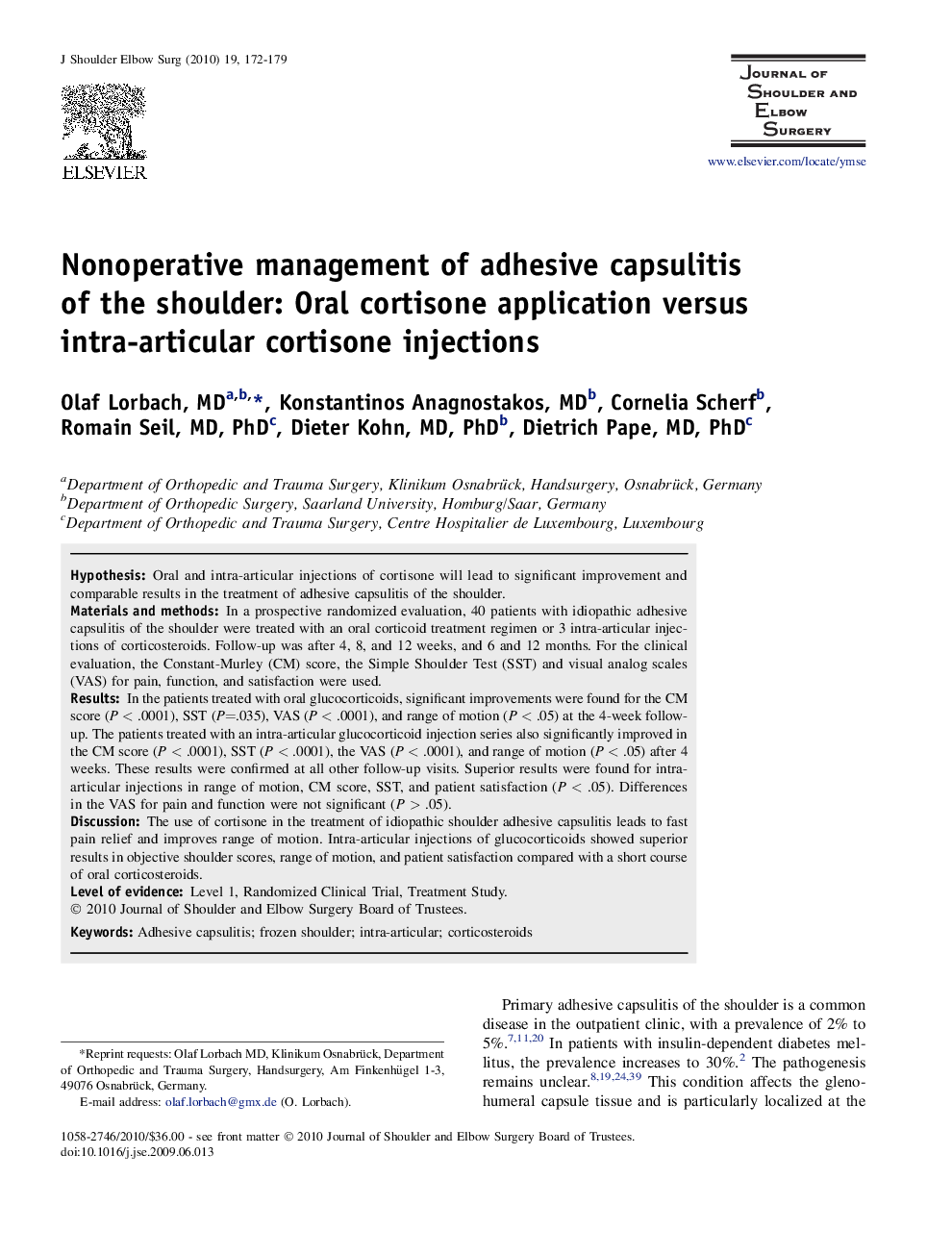| Article ID | Journal | Published Year | Pages | File Type |
|---|---|---|---|---|
| 4076069 | Journal of Shoulder and Elbow Surgery | 2010 | 8 Pages |
HypothesisOral and intra-articular injections of cortisone will lead to significant improvement and comparable results in the treatment of adhesive capsulitis of the shoulder.Materials and methodsIn a prospective randomized evaluation, 40 patients with idiopathic adhesive capsulitis of the shoulder were treated with an oral corticoid treatment regimen or 3 intra-articular injections of corticosteroids. Follow-up was after 4, 8, and 12 weeks, and 6 and 12 months. For the clinical evaluation, the Constant-Murley (CM) score, the Simple Shoulder Test (SST) and visual analog scales (VAS) for pain, function, and satisfaction were used.ResultsIn the patients treated with oral glucocorticoids, significant improvements were found for the CM score (P < .0001), SST (P=.035), VAS (P < .0001), and range of motion (P < .05) at the 4-week follow-up. The patients treated with an intra-articular glucocorticoid injection series also significantly improved in the CM score (P < .0001), SST (P < .0001), the VAS (P < .0001), and range of motion (P < .05) after 4 weeks. These results were confirmed at all other follow-up visits. Superior results were found for intra-articular injections in range of motion, CM score, SST, and patient satisfaction (P < .05). Differences in the VAS for pain and function were not significant (P > .05).DiscussionThe use of cortisone in the treatment of idiopathic shoulder adhesive capsulitis leads to fast pain relief and improves range of motion. Intra-articular injections of glucocorticoids showed superior results in objective shoulder scores, range of motion, and patient satisfaction compared with a short course of oral corticosteroids.
